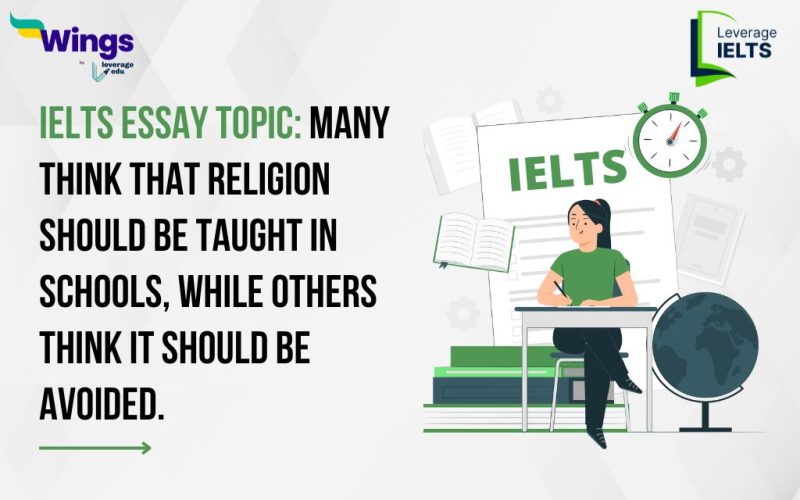Sample
| Religion has always played a significant role in shaping the beliefs and values of individuals and societies. There is a debate regarding whether religion should be taught in schools. While some argue that it is essential to teach religion to students to promote understanding, tolerance, and moral development, others believe that it should be avoided due to concerns about secularism and the potential for division. In this essay, I will examine both perspectives and provide my view on the matter. One of the main arguments in favour of teaching religion in schools is that it helps students understand different cultures and worldviews. Religious education can provide students with knowledge of various belief systems, which can foster respect and tolerance for people of different backgrounds. In multicultural societies, understanding religion is often crucial in bridging cultural divides and promoting social harmony. For instance, learning about Christianity, Islam, Hinduism, and other religions can help students better comprehend the beliefs and practices of their peers. Additionally, some proponents argue that teaching religion can provide students with moral guidance and promote ethical values such as compassion, honesty, and responsibility. However, opponents of teaching religion in schools believe that it may lead to bias and intolerance. They argue that schools should remain neutral and avoid favouring any particular religion. In a secular environment, teaching religion may create an impression that certain religions are more important than others. Moreover, it can create divisions among students, leading to discrimination or even conflict. For example, some students may feel uncomfortable or excluded if their religion is not represented in the curriculum. Another concern is that teaching religion in schools may infringe upon freedom of belief and encourage proselytization, especially if the curriculum is perceived as promoting one religion over others.In conclusion, the debate over whether religion should be taught in schools is complex. While teaching religion can promote cultural understanding and ethical development, it also risks creating division and bias. Ultimately, I believe that a balanced approach is necessary—religion should be taught in schools in a way that encourages respect for all belief systems without promoting one over the other. |
Successfully preparing for the IELTS Writing Section, requires consistent practice, a clear strategy, and the right resources. By linking your responses between IELTS Writing Part 1 and IELTS Writing Task 2 , you can showcase your ability to elaborate on topics and provide insightful answers.
If you’re finding it challenging to prepare, consider taking an IELTS Mock Test to evaluate your progress or join our offline or online IELTS classes at Leverage Edu to enhance your skills and boost your confidence, ensuring you are fully prepared for your IELTS Speaking Test and one step closer to achieving your study abroad aspirations.
FAQs
Religion can influence the global education system through moral values, shaping historical narratives, and developing cultural understanding. Thus it can ensure that students gain an overall perspective.
Religious curriculum can develop moral values in studies and promote inclusivity. However, it creates a risk of bias and conflicts. Hence, a balanced approach is needed.
Schools can avoid bias by teaching religion from a neutral perspective. Diverse perspectives have to be covered equally, and the foucus must be on shared values, and improving cultural understanding.


 One app for all your study abroad needs
One app for all your study abroad needs












 60,000+ students trusted us with their dreams. Take the first step today!
60,000+ students trusted us with their dreams. Take the first step today!